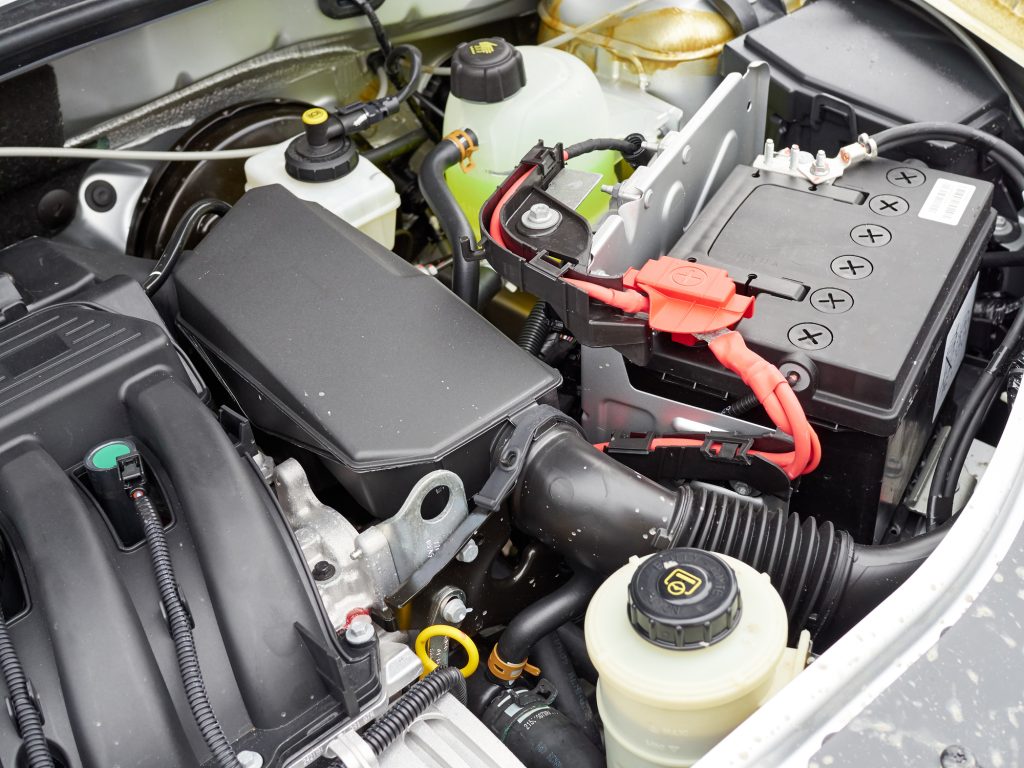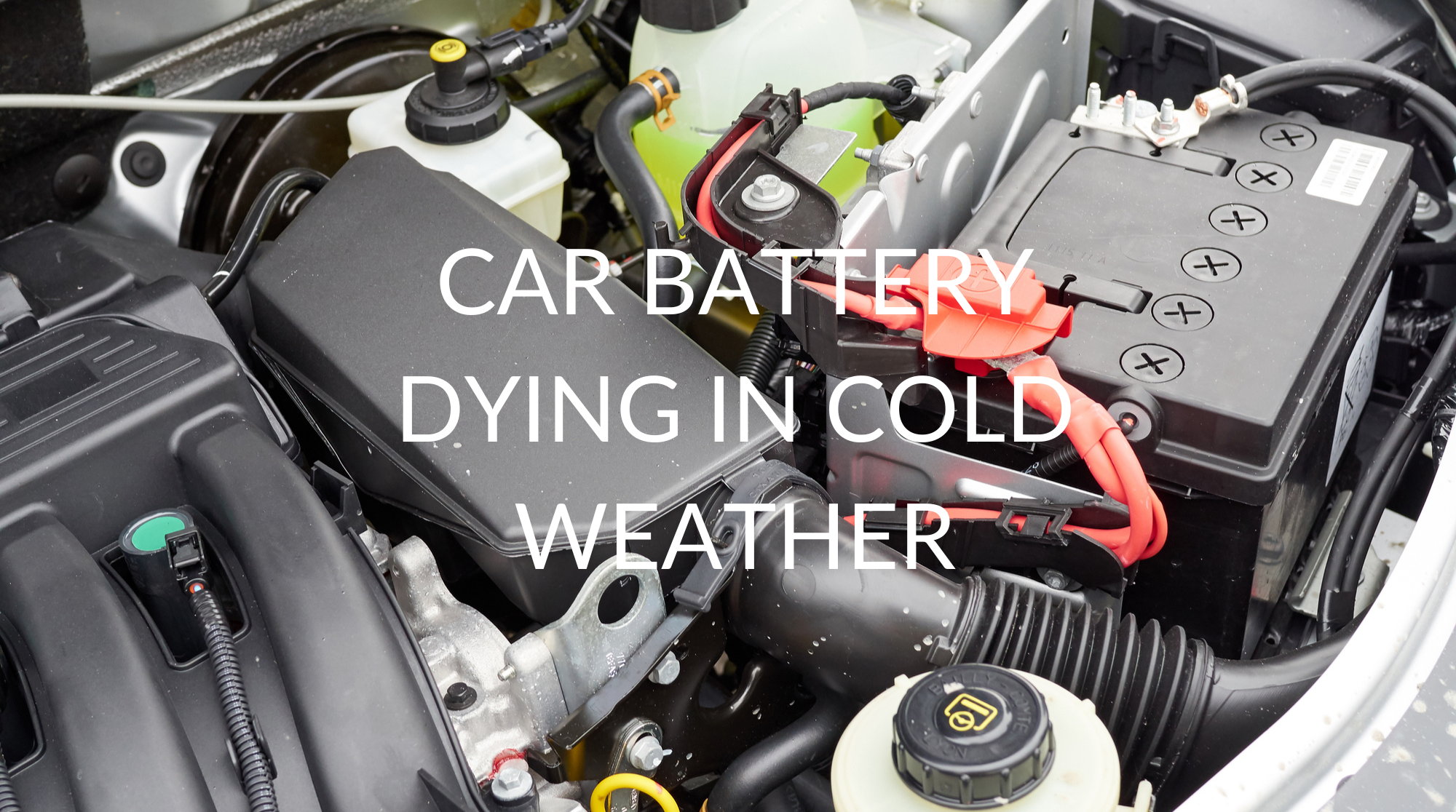It’s no surprise that cold weather affects your car batteries’ life – but what many drivers don’t realize is just how much of an impact it can have. So If your car battery is dying in cold weather, then you’ve found the right article!
In this article, not only will you find out all the different things that will kill a battery in cold weather, but you’ll also learn what you can do to prevent it from happening!
So keep reading to find out everything you need to know!
What Kills Car Batteries In Cold Weather?
There are a number of reasons that your battery may die in cold weather, so make sure you’re paying attention to all of the following:
Motor Oil Thickens In Cold Weather
Motor oil thickens in cold weather, making it harder for the engine to turn over. This is why you should always check your car’s oil level before winter sets in and top it off if necessary. You may also want to switch to thinner motor oil, which will better withstand cold temperatures.
Chemical Reactions Are Going To Be Slower
Chemical reactions in the battery are going to be sluggish and slower as well. This will make it much harder for your battery to start up in cold weather, so you’ll need to take extra care of it. Make sure to keep it fully charged and avoid leaving it in the cold for extended periods of time.
Extra Technology Use
Another reason your car battery is dying in cold weather may be because of technology such as heating, heated seats, etc., which all drains the battery. Devices that use a lot of power, like heated seats, stereos, and GPS can drain the battery very quickly. If you’re not going to be using your car for a while, it’s best to disconnect the negative battery cable. This will help to preserve the battery’s charge.
Internal Components Of Your Car Will Be Strained
The cold temperatures can also cause strain on the internal components of your car. This includes things like the starter, alternator, and other electrical components that are used to start and run your vehicle.
All of this extra strain will result in your battery needing to work harder to get the car going.
The Water In The Battery Can Freeze
The water in the battery can freeze, causing permanent damage to the battery. This is why it’s important to check your car’s fluids regularly during cold weather and make sure they are filled to the proper levels.
If necessary, you should also add an additive that will help keep the water from freezing.
Fortunately, while this won’t happen in a fully charged battery, it’s much more likely to happen, it’s much more likely to happen in a battery with a low charge.
Summer Damage
Finally, even if your car battery survives the winter months, it may still be damaged by the heat of summer. In hot weather, your car’s fluids can evaporate quickly, causing corrosion on the terminals and other internal components of your car’s battery.
And then, when winter comes, your battery will be less able to handle the cold temperatures.

How Cold Does It Have To Be To Drain A Cars Battery?
For most cars, temperatures below freezing can start to hurt the battery. At this point, the chemical reactions inside the battery are beginning to slow down, and it will be much harder for your car to get started in cold weather.
If you don’t take any extra precautions, then your car’s battery could be in real trouble below 0 degrees Celsius. So if you live in a cold climate, it’s best to take the extra steps necessary to keep your car battery in good shape.
How To Keep A Car Battery From Dying In Cold Weather
Fortunately, while cold weather has several effects on batteries, there are even more things you can do to protect your batteries as well!
So make sure you’re trying the following!
Make Sure Your Car Powers Down Properly
When you’re done driving, make sure to turn off all of your car’s electronic components before powering down the engine. This will help to avoid draining the battery while it isn’t in use.
Check The Batteries Fluids
Check the fluid levels of your car battery regularly and make sure they are filled to the appropriate level. This is going to help prevent the water in your battery from freezing.
Keep The Battery Charged
It’s also important to keep your car’s battery fully charged throughout the winter months. This will help it to start more easily in cold weather and make sure the battery doesn’t get too drained.
Switch To Thinner Oil
If you live in a particularly cold climate, you may want to switch to thinner oil when winter sets in, and top it off if necessary. You may also want to switch to a thinner oil for your differential and transmission as well.
Add An Antifreeze Additive
In addition, you may want to add an antifreeze additive to your car’s battery. This will help keep the internal components of your car from freezing during cold weather, which can help extend its life and prevent any costly repairs.
Check For Leaks And Loose Cables
Be sure to check for any leaks or loose cables in your car battery. This can cause a lot of problems in cold weather and should be addressed immediately.
By taking the necessary steps to protect your car’s battery from the effects of cold weather, you will help ensure that it stays healthy and powerful even when temperatures start.
Know The Lifespan Of Your Battery
It’s also important to keep in mind that car batteries have a limited lifespan. Make sure you know when your battery should be replaced, and make sure to get it done before cold weather sets in. This will help ensure that your car has enough juice to start up even on the coldest days of winter.
Use A Battery Blanket
You should also consider using a battery blanket. This is a device that wraps around your car’s battery and keeps it warm by using an electric current. It can be a great way to stop your car battery from dying in cold weather, as well as extend the life of your car’s battery in cold weather.
Try To Keep Your Battery Out Of The Cold For Exposed Periods
You should also try to keep your car battery out of the cold for extended periods. If you are planning a trip in cold weather, parking it in a garage or out of the extreme elements will go a long way.
Inspect Your Battery Regularly
Finally, make sure to inspect your battery regularly during cold weather. Check the terminals for any signs of corrosion and clean them off, if necessary, with a baking soda solution. This will help you keep your car’s battery in good shape throughout the winter months.
FAQ
Here are some frequently asked questions that people have about protecting their car batteries during the colder months!
How Cold Does It Have To Be To Drain A Car Battery?
It depends on the type of car battery and how much juice it has left. Generally speaking, a fully charged car battery can last in temperatures as low as -20 degrees Celsius.
Should I Leave My Car Running When It’s Cold Outside?
No, you should avoid leaving your car running for too long when it’s cold outside. This can lead to the battery being drained and cause some damage.
If A Car Battery Dies In The Cold Will it Recharge?
Yes, a car battery can be recharged even if it dies in the cold. However, doing so may reduce its overall life expectancy. It’s best to try to keep your car battery fully charged during the winter months.
Does Cold Weather Permanently Damage Batteries?
No, cold weather does not permanently damage batteries. However, it can reduce the overall lifespan of the battery and make it more difficult to start in cold temperatures. That’s why it’s important to take the necessary steps to protect your car’s battery from the effects of cold weather.
How Long Does It Take To Charge A Dead Battery In The Cold?
This depends on the type of battery, the temperature outside, and how much charge it has left. Generally speaking, it can take up to 10-24 hours for a dead battery to fully charge in cold weather.
How Do You Start A Dead Car Battery In The Cold?
If your car battery is dead in cold weather, the best way to start it up again is to remove the battery from the car and take it inside somewhere warm. Once it has warmed up a bit, you can try charging it with a jump starter or booster pack. This should get your car started again.
What Is The Best Way To Insulate A Car Battery?
The best way to insulate a car battery is to use a battery blanket. This device wraps around your battery and uses an electric current to keep it warm. It can be a great way to extend the life of your car’s battery in cold weather.
Conclusion
Cold weather can have a major impact on your car battery’s performance. It is important to take the necessary steps to protect it from the cold, such as using a battery blanket and keeping your car out of extreme temperatures for extended periods. Additionally, make sure to inspect your battery regularly and charge it fully before cold weather sets in. By doing so, you can help ensure that your car battery stays in good shape throughout the winter months.

